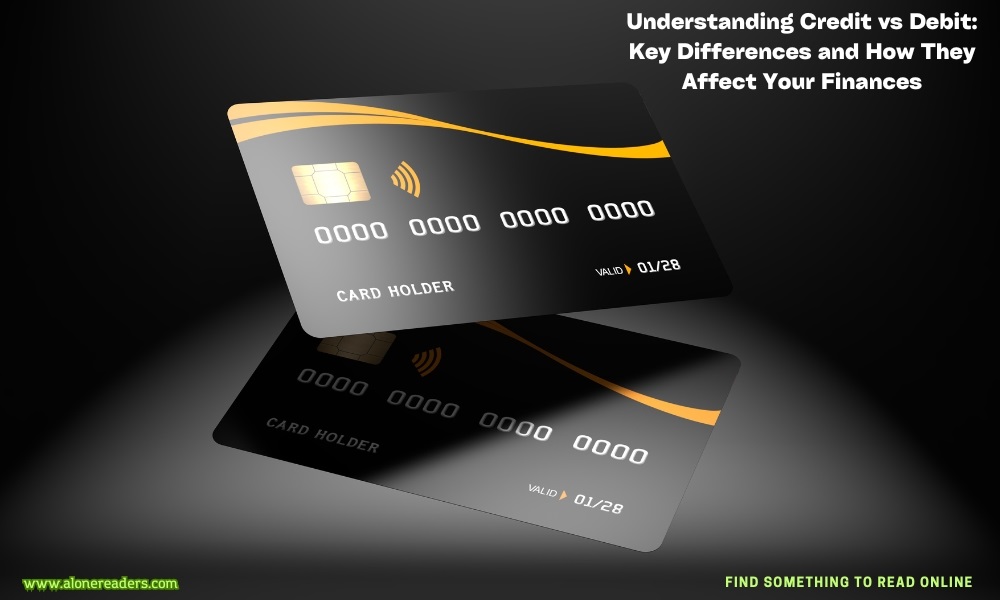
When discussing personal finance, the terms "credit" and "debit" frequently arise, especially in the context of banking and card transactions. While both types of cards may look similar and are used in similar ways, they represent different financial approaches and have distinct impacts on your financial health.
A debit card is linked directly to your bank account. When you use a debit card for purchases, the money is immediately deducted from your bank account. This makes debit cards a popular choice for those who prefer to monitor their spending closely and avoid accumulating debt. The immediacy of the transaction with debit cards also means that you must have sufficient funds in your account to cover your purchases, which can help prevent overspending.
In contrast, a credit card provides you with access to a line of credit offered by the bank. When you use a credit card, the bank pays the retailer on your behalf, and you, in turn, owe the bank that amount. This amount must be paid back within a stipulated period to avoid interest charges. Credit cards are advantageous for building credit history and for those who need to make large or emergency purchases that may not be immediately affordable with their bank balance. However, the ability to delay payment can lead to higher spending and potentially significant debt if not managed carefully.
One of the primary benefits of using a debit card is the limitation it places on your ability to accrue debt. Since the funds are withdrawn directly from your bank account, you're spending money you already have. Additionally, debit cards often do not have annual fees, and they avoid the high interest rates associated with unpaid credit card balances. However, they offer limited protection in cases of fraud compared to credit cards, and they don't contribute to your credit score—a critical factor when applying for loans, mortgages, or even renting some properties.
Credit cards, on the other hand, can provide significant benefits if used responsibly. Many offer rewards such as cashback, points towards purchases, or airline miles. They also provide purchase protections like extended warranties and insurance for travel and rental cars, which are not typically offered with debit cards. Most importantly, using a credit card responsibly by making regular payments and keeping your balance low can help build your credit rating. However, credit cards can be a double-edged sword. The ease of using credit can lead to spending beyond one's means, and the interest rates on unpaid balances can be exorbitantly high, leading to a cycle of debt that is difficult to break.
Another significant difference between debit and credit cards is how they impact your credit utilization ratio—a major component of your credit score. This ratio measures the amount of credit you are using compared to the amount available to you. High utilization can negatively affect your credit score, and since debit card use doesn't appear on your credit report, it has no effect on this ratio. In contrast, maintaining a low balance on your credit card and paying off your bills on time can positively influence your credit score.
From a security perspective, credit cards offer stronger fraud protection. Under U.S. law, your liability for fraudulent credit card charges is limited to $50, and many issuers offer zero liability policies. Debit cards, while also having some fraud protections, can pose a higher risk because they provide direct access to your bank account. Recovering funds from debit card fraud can be more challenging and take longer, impacting your immediate financial situation.
The choice between using a debit or a credit card depends on individual financial habits and needs. For those who are disciplined and can pay off their balances each month, credit cards offer more benefits and protections along with the opportunity to build a favorable credit history. For individuals who struggle with budgeting or who wish to avoid debt, debit cards offer a straightforward, no-frills way to manage money directly from their bank account.
In conclusion, both credit and debit cards serve important but distinct roles in personal finance management. Choosing the right one depends on understanding their differences and assessing how these differences align with your financial goals and habits. By carefully considering your financial situation and the benefits and risks associated with each type of card, you can make informed decisions that optimize your financial health and support your spending habits in the most effective way.